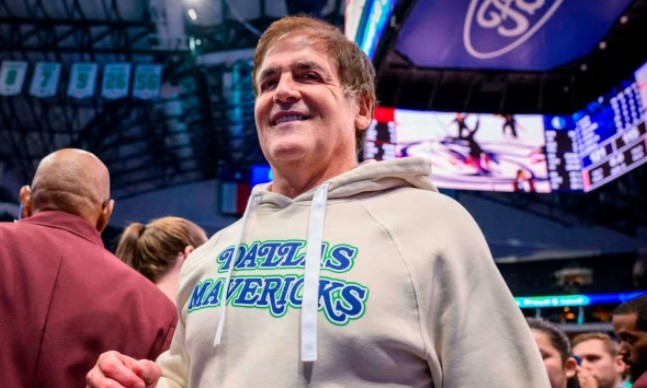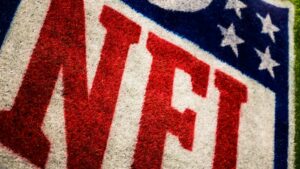Throughout his career, Mark Cuban has vacillated from one endeavor to the next, and his most recent decisions have left observers wondering: what will the dotcom billionaire do next, after selling a majority stake in his professional basketball team and proclaiming his intention to leave his reality television job?
Cuban announced his resignation from Shark Tank, a popular reality television program in which he and other entrepreneurs evaluate start-up proposals, last week. The following day, it was reported that he had reached an agreement with the family of the late casino magnate and Republican donor Sheldon Adelson to sell his majority stake in the Dallas Mavericks professional basketball franchise. However, he will retain minority ownership and control of the team’s basketball operations.
At this time, much conjecture surrounds Cuban’s future endeavors, including whether his 65-year-old project will maintain his nearly three-decade-long streak of astute timing. Cuban deferred to comment in an email to the Financial Times on inquiries regarding his future plans until the transaction is finalized, which may occur this month at the earliest.
While he has previously toyed with the idea of entering politics, he informed NBC News that he has no intention of running in 2024. Conversely, his public remarks indicate that he might be contemplating venturing into the rapidly expanding legalized gambling market in the United States, following in the footsteps of other billionaires like Steve Cohen who are attempting to establish a mini-entertainment empire around their sports teams.
Cuban stated to a Dallas news affiliate last week that the Mavericks transaction would presumably attract casino tourism and diversify the team’s revenue stream away from reliance on local media rights.
“I believe that what we lose in media can be replaced and current and future Mavs can be funded with a new arena, real estate area, and hopefully a resort casino in the future,” he said.
Cuban, who was born in Pittsburgh, relocated to Dallas in close proximity to her graduation from Indiana University. Together with fellow IU alumnus Todd Wagner, they conceived the notion of transmitting audio from Indiana Hoosiers basketball contests via the internet. During the height of the dotcom surge in 1999, they sold Broadcast.com to Yahoo for $5.6 billion. The company was which they had founded.
Cuban utilized his considerable fortune to acquire the quintessential symbol of American status: a professional sports team. Upon acquiring the Dallas Mavericks for an alleged $285 million in 2000 from fellow Dallas computing magnate and former US presidential candidate H Ross Perot, he quickly rose to prominence as one of the league’s most recognizable owners due to his active ownership and courtside antics. In 2011, the franchise achieved its inaugural NBA championship. Its current value is $3.5 billion.
“Here is an individual who surrounds himself with trustworthy individuals and has the ability to discern the appropriate moments to enter and exit situations.” “He differs from other owners who are grasping for every last dollar,” said Joe Favorito, a former business development professional in the mixed-martial arts industry and lecturer in the sports management program at Columbia University.
Favorito assisted in the mid-2000s in introducing mixed martial arts (MMA) programming to HDNet, a cable channel that Cuban had founded and formerly owned.High-definition television was an emerging technology at the time. “His level of foresight astounded me,” Favorito remarked of Cuban, who subsequently divested his controlling interest in HDNet, presently referred to as AXS TV.
Having sold his stake in the Mavericks to the Adelsons, he now has a seasoned collaborator in the event that he decides to establish a wagering empire in Texas. A significant obstacle, however, persists: wagering is still prohibited there. According to the American Gaming Association, since the US Supreme Court invalidated a federal prohibition on sports wagering in 2018, 38 states and the District of Columbia have legalized the practice, creating an industry worth $49 billion through the first nine months of 2023.
Texas, boasting the second-largest economy and population in the United States, is regarded as a promising prospective gaming market. In recent years, the state legislature has been inundated with lobbying efforts concerning this matter, with Las Vegas Sands, the casino empire established by Adelson, spearheading the charge as recently as 2022. However, a vote on a proposed measure to legalize casino and sports gambling was postponed this spring in the Texas House of Representatives.
To persuade Texas legislators to comply, political maneuvering will be necessary, including a referendum and a supermajority vote in both chambers of legislatures to modify the state constitution. Historically, substantial portions of religious and conservative constituents in Texas have opposed legalized wagering on principle.
This month, Republican lieutenant-governor of Texas Dan Patrick stated that the majority-Republican Senate lacks the necessary votes to support gambling.
Macquarie Group gaming industry analyst Chad Beynon estimated that Texans contributed approximately $3 billion in gaming revenue to neighboring states. Texas, on the other hand, has a $32 billion budget surplus, in contrast to other U.S. states that have embraced gambling revenues to replenish depleted tax coffers.
Beynon stated, “Had they required the funds, they would have legalized gambling by now.”





